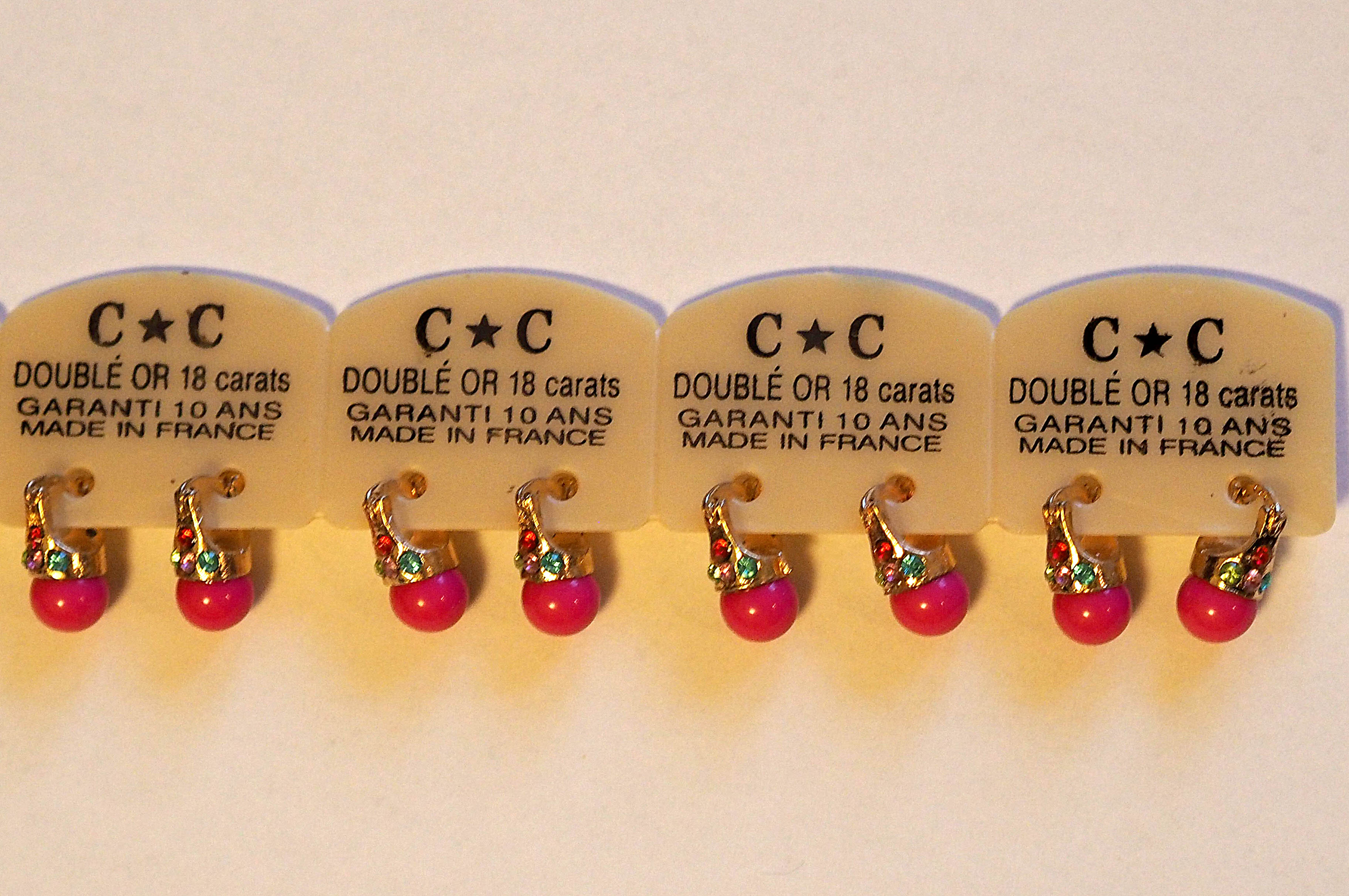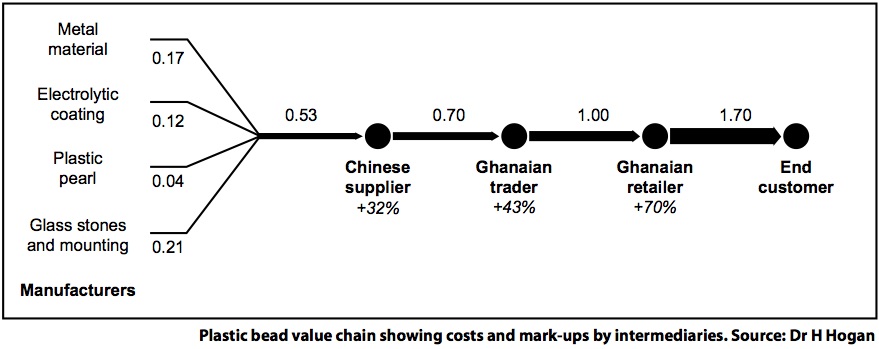Bargains galore: A customer at a jewellery store in Xijiao market
COMMENT
What do pink plastic pearls have to do with unemployment, especially for our children?
For the answer, go to the Hosea Kutako Airport in Windhoek or the Sir Sereste Khama Airport in Gaborone, or just about any other airport in Africa and, three or four times a week, you will witness a strange phenomenon — a large number of people checking in for an Ethiopian Airlines flight but they will not be carrying luggage, not even carry-on baggage.
If you ask them why, you will find out that they are not going to Addis Ababa per se but instead are catching a connecting flight to Guangzhou in southern China.
In 2017, you could get a return ticket to Guangzhou with Ethiopian Airlines for about $800 from Windhoek. On top of that, Ethiopian Airlines threw in 45kg of free luggage plus another seven as cabin luggage.
The travellers are Africa’s new generation of millennial traders. They return with 100kg-plus of purchases they have made in Guangzhou (formerly Canton), which has been the main trading hub of southern China for hundreds of years.
In 2016, it was estimated that about 500 000 Africans made the trip to buy high-value-to-weight items to sell at home. It is a huge, informal trade worth billions in exports for China every year.
The returning traders do not declare the true value of the goods and pay only small amounts of import duty and value-added tax, and, increasingly, these traders and the networks they create in their own countries undercut the prices of goods in established retail outlets.
Norwegian sociologist Heidi Haugen recently did a study of the trade between Ghana and China in pink plastic pearl earrings, a strange commodity, no doubt. But she followed the chain, from Chinese inputs to the final buyer in Ghana and what she discovered is a revelation.

[Traders buy cheap jewellery and the pink plastic earrings that are popular in Ghana]
African politicians in gold-producing countries dream of establishing local gold jewellery manufacturing industries but most African women cannot afford such luxuries, especially with gold trading at $1 280 an ounce. Instead, pink plastic pearl earrings are commonly given to bridesmaids at weddings in Ghana. They are cheap — at the time of the study, informal traders were selling them for about $0.25 a pair.
The Chinese make the earrings for about $0.09 a pair. The Chinese supplier adds 32%, taking the cost to $0.12. The trader takes them back to Accra, pays the tax, and then distributes the earrings through his — or more commonly her — network to retailers, who then sell them to the happy couple for $0.25 a pair.
So, you ask, what does this have to do with the future employment of our children? The answer is: everything.
In the above case, most of the value is added by the Ghanaian trader and retailer but all the jobs are created in China, because Ghana does not have the metal, the electrolytic coating, the plastic beads or the glass that go into making them. And, furthermore, if a Ghanaian manufacturer actually wanted to produce the pink plastic pearl earrings in Accra he would almost certainly have to import the ingredients from China at a much higher price.
What is true of pink plastic pearl earrings is unfortunately true of just about everything we consume in Africa. We make almost nothing except holes in the ground for the big mining companies.
This is the sad story of Africa, writ small in pink plastic earrings. It is cheaper and more profitable to buy in China and trade in Africa.

And so people are unemployed — but not because of the enterprising women. (And it is mainly women who travel to China not speaking a word of Mandarin or Cantonese and conducting their business using Google translator.) They are simply trying to feed their families.
It is also not the fault of the retail networks that distribute these cheap products.
If you are looking for a villain, it is our fault and the fault of those who rule us, who will not dare tell people the painful political truth — that until we have what it takes to make these goods, and until we can make them cheaper than the Chinese, our children will be unemployed. They will be hoping to become latter-day slaves in Europe, if they can survive crossing the Mediterranean.
It is said that if you point a finger at someone there are always three fingers pointing back at you.
For Africa to succeed it will mean great sacrifice by its peoples for at least a generation and we all know that we will never elect a politician who tells us such ugly truths.
These are the views of Professor Roman Grynberg and not necessarily those of the University of Namibia, where he is employed